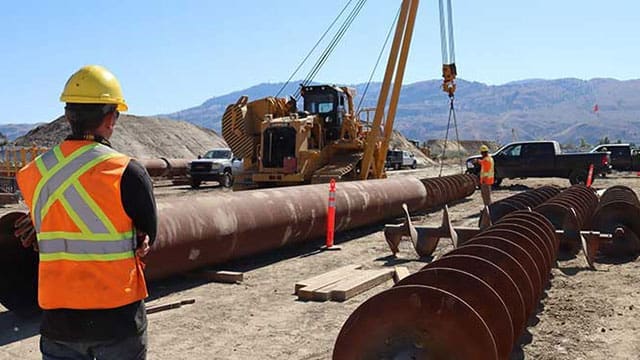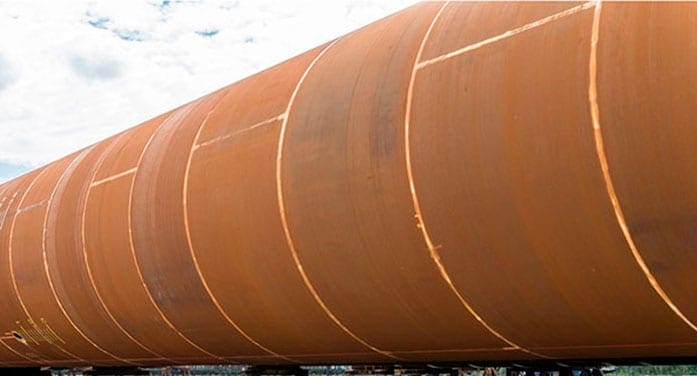 The outcome of last month’s B.C. election raises serious questions about future energy policy in British Columbia.
The outcome of last month’s B.C. election raises serious questions about future energy policy in British Columbia.
The election produced no clear winner, although the New Democrats and the Green Party have agreed to unite with an eye on forming the next government. That’s where the questions come in.
During the campaign, the two parties offered policy perspectives that were considerably more stringent on both energy and climate change than the incumbent Liberals.
A key element of the Green/NDP coalition is their opposition to the proposed Kinder Morgan Trans Mountain pipeline expansion, which was approved by the federal government last November after a review process that lasted nearly five years and imposed 157 additional requirements on the project. The new coalition pledges to use “every tool available” to stop the pipeline, including preventing additional tanker traffic off the coast of B.C.
In response, Prime Minister Justin Trudeau and Alberta Premier Rachel Notley have expressed, in no uncertain terms, that they expect this pipeline to be built.
The prime minister noted several important facts while maintaining his support. He recognized that the pipeline project was rigorously assessed by the National Energy Board and that elections don’t change the past. “Regardless of the change in government in British Columbia or anywhere,” he said, “the facts and evidence do not change.”
Notley made two important observations about the pipeline. She noted that provinces don’t have the right to negate projects that have received federal approval and that providing such provincial rights would damage Canada’s overall national interest.
But there’s still another reason why the Kinder Morgan pipeline (and several other proposed pipelines) should be approved: to protect human health and the environment.
|
Related Stories |

|
| Busting myths about the Trans Mountain expansion
|
| Trans Mountain opponents out of touch with reality
|
| The Trans Mountain truth defies activists’ claims
|
In 2015, the Fraser Institute analyzed data from the Transportation Safety Board and Transport Canada, to assess the relative safety of moving oil by pipeline versus moving that same quantity by rail. The researchers found that while both modes of transport are overwhelmingly safe, delivering more than 99 percent of product to market without accident, pipelines were somewhat safer than rail.
Specifically, pipelines were found to be 4.5 times less likely to have an accident or incident than rail transport. Moreover, 70 percent of pipeline spills are very small, releasing less than one cubic metre of oil. And pipeline spills mostly occur at facilities – only 17 percent of pipeline occurrences took place in the actual line pipe.
As for tankers off B.C., the Fraser Institute noted in a separate study that tanker safety has improved vastly while oil shipped by tanker has increased markedly. There has been no major oil spill in Canadian waters in 20 years.
Clearly, while all transport modes are needed and will continue to be used, the decision about which mode to use (after accounting for safety) should be more about economics and less about environmental superstition.
Pipelines aren’t only safer for moving oil, they’re up to three times cheaper.
Other studies have shown moving oil by pipeline is also safer for people – fewer workers are injured when moving oil by pipeline than by rail.
Whether you agree or disagree with their climate policies, you have to respect the strong resolve shown by Trudeau and Notley in advancing this pipeline project, particularly in the face of strong opposition from their own side of the political spectrum.
Of course, they not only should, they basically have to – both have staked their reputations, at home and internationally, on the idea that Canada’s implementation of stringent greenhouse gas policies would allow pipelines to be built and Canada’s oil resources to capture full value on hungry markets outside of the glutted U.S.
If nothing else, for the sake of showing the world (and its investors) that Canada can still manage to build important national infrastructure, the PM and premier should stay the course.
Kenneth Green is senior director of the Centre for Natural Resource Studies at the Fraser Institute.
Ken is a Troy Media contributor. Why aren’t you?
The views, opinions and positions expressed by columnists and contributors are the author’s alone. They do not inherently or expressly reflect the views, opinions and/or positions of our publication.


